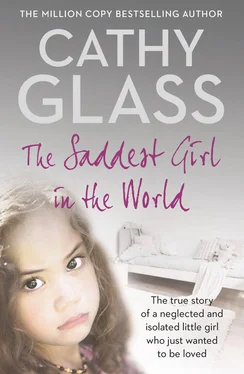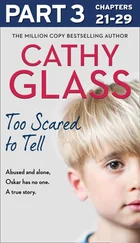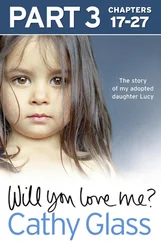‘Try to keep the sand in the sandpit. Good boy,’ I said to Adrian as I passed.
‘I'm building a motorway,’ he said. ‘I'm going to need cement and water to mix with the sand, and then it will set hard into concrete.’
‘Oh yes?’ I asked doubtfully.
‘It's to make the pillars that hold up the bridges on the motorway. Then I'm going to bury dead bodies in the cement in the pillar.’
‘What?’ I said. Paula looked up.
‘They hide dead bodies in the cement,’ Adrian confirmed.
‘Whoever told you that?’
‘Brad at school. He said the Mafia murder people who owe them money, and then put the dead bodies in the pillars on the motorway bridges. No one ever finds them.’
‘Charming,’ I said. ‘Perhaps you could build a more traditional bridge without bodies. And preferably keeping the sand in the sandpit.’
‘Look!’ he continued, unperturbed. ‘I've already buried one body.’
I paused from hanging up the washing as Adrian quickly demolished one of the molehills of sand with the digger to reveal a small doll caked in sand.
‘That's mine!’ Paula squealed. ‘It's Topsy! You've taken her from my doll's house!’ Her eyes immediately misted.
‘Adrian,’ I said, ‘did you ask Paula if you could borrow Topsy and bury her in sand?’
‘She's not hurt,’ he said, brushing off the sand. ‘Why's she such a baby?’
‘I'm not a baby,’ Paula wailed. ‘You're rotten!’
‘OK, OK,’ I said. ‘Enough. Adrian, clean up Topsy and give her back to Paula. And please ask your sister next time before you take her things. If you want to bury something, why not use your model dinosaurs? Dinosaurs are used to being buried: they've been at it for millions of years.’
‘Cor, yes, that's cool,’ Adrian said with renewed enthusiasm. ‘I'll dig in the garden for dinosaur fossils!’ On his hands and knees, he scooped Topsy up in the digger and deposited her in Paula's lap, and then headed for the freshly turned soil in a flowerbed that I had recently weeded. I thought that if Edna couldn't smooth over the sibling rivalry between Donna and her younger brothers and Donna did come to stay, she would be in very good company, and would soon feel most at home.
I made the three of us a sandwich lunch, which we ate in the garden under the shade of the tree; then I suggested to Adrian and Paula that we went to our local park for an hour or so. The park was about a ten-minute walk away, and Adrian wanted to take his bike and Paula her doll's pram. I asked Adrian to go to the shed at the bottom of the garden and get out the bike and doll's pram while I took in the dry washing and the lunch things, and closed the downstairs windows. Since my divorce, Adrian, in small ways, had become the man of the house, and although I would never have put on him or given him responsibility beyond his years, having little ‘man’ jobs to do had helped ease the blow of no longer having his father living with us, as did seeing him regularly.
It was quite safe for Adrian and Paula to go into the shed: anything dangerous like the shears, lawn feed and weedkiller was locked in a cupboard, and I had the key. Apart from being necessary for my own children's safety, this was an essential part of our ‘safer caring policy’, which was a document all foster carers had to draw up and follow, and detailed how the foster home was to be kept safe for everyone. Each year Jill, my support social worker, checked the house and garden for safety, as part of my annual review. The garden had to be enclosed by sturdy fencing, the side gate kept locked, drains covered and anything likely to be hazardous to children kept locked away. The safety checklist for the house itself grew each year. Apart from the obvious smoke alarms, stair gates (top and bottom) if toddlers were being fostered, the locked medicine cupboard high on the wall in the kitchen, and the plug covers or circuit breaker, there were also now less obvious requirements. The banister rails on the stairs had to be a set distance apart so that a small child couldn't get their head, arm or leg stuck in the gap; the glass in the French windows had had to be toughened in case a child ran or fell into them; and the thermostats on the radiators had to be set to a temperature that could never burn a young child's delicate skin. It is true to say that a foster carer's home is probably a lot safer than it would be if only the carer's own children were living there.
‘And don't forget to close the shed door, please, Adrian,’ I called after him. ‘We don't want that cat getting in again.’
‘Sure, Mum,’ he returned, for he remembered, as I did, the horrendous smell that had greeted us last week after a tomcat had accidentally got locked in overnight; the smell still hadn't completely gone, even after all my swabbing with disinfectant.
‘Sure, Mum,’ Paula repeated, emulating Adrian, having forgiven him. I watched as Adrian stopped and waited for Paula to catch up. He held her hand and continued down the garden, protectively explaining to her that she could wait outside the shed while he got her pram so that she wouldn't have to encounter the big hairy spiders that lurked unseen inside. Ninety per cent of the time Adrian and Paula got along fine, but like all siblings occasionally they squabbled.
Half an hour later we were ready to go. The bike and doll's pram, which we had brought in through the house to save unpadlocking the side gate, were in the hall. I had my mobile and a bottle of water each for the children in my handbag, and my keys for chub-locking the front door were in my hand. Then Paula said she wanted to do a wee now because she didn't like the toilets in the park because of the spiders. Adrian and I waited in the hall while she went upstairs, and when she returned five minutes later we were finally ready for off. I opened the front door, Adrian manoeuvred his bike out over the step, and Paula and I were ready to follow with her doll's pram when the phone on the hall table started ringing.
‘Adrian, just wait there a moment,’ I called, and with Adrian paused in the front garden and Paula waiting for me to lift the pram over the step I picked up the phone. ‘Hello?’
‘Is that Cathy Glass?’ It was a woman's voice with a mellow Scottish accent.
‘Speaking.’
‘Hello, Cathy. It's Edna Smith, Donna's social worker. I spoke to Jill earlier. I think you're expecting my call?’
‘Oh yes, hello Edna. I'm sorry, can you just wait one moment please?’ I covered the mouthpiece. ‘It's a social worker,’ I said to Adrian. ‘Come back inside for a minute.’ He left his bike on the front path and came in, while I helped Paula reverse her pram a little along the hall so that I could close the front door. ‘I won't be long,’ I said to the children. ‘Go into the lounge and look at a book for a few minutes.’ Adrian tutted but nevertheless nodded to Paula to follow him down the hall and into the lounge.
‘Sorry, Edna,’ I said, uncovering the mouthpiece. ‘We were just going out.’
‘I'm sorry. Are you sure it's all right to continue?’
‘Yes, go ahead.’ In truth, I could hardly say no.
‘Cathy, I'm in the car now, with Donna. She's been a bit upset and I'm taking her for a drive. I had hoped to come and visit you, just for a few minutes?’
‘Well, yes, OK. How far away are you?’
‘About ten minutes. Would that be all right, Cathy?’
‘Yes. We were only going to the park. We can go later.’
‘Thank you. We won't stay long, but I do like to do an initial introductory visit before a move.’ So Donna was being moved, I thought, and while I admired Edna's dedication, for doubtless this unplanned visit had disrupted her schedule as it had ours, I just wished it could have waited for an hour until after our outing. ‘I should like to move Donna to you this evening, Cathy,’ Edna added, ‘if that's all right with you and your family?’
Читать дальше












